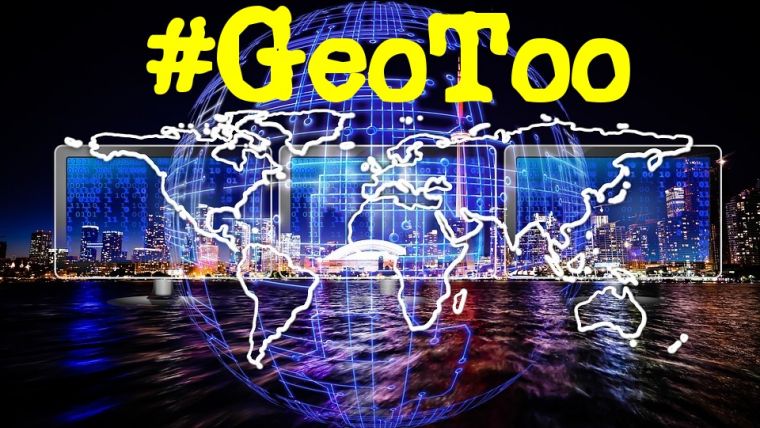#GeoToo
In his latest column, Kees de Zeeuw observes that geo-related technologies and data flows are continuing to expand exponentially and claims that the true challenge will lie in the management and use of all this data. He questions what big data will mean for the quality, reliability, relevance and usability of the information the geo sector provides to society. If misuse of the power of geospatial information leads to the wrong choices and decisions in spatial planning, environmental sciences, land administration and suchlike, could this result in a #GeoToo discussion, he wonders?
At the beginning of my career, in the early nineties, the book ‘How to Lie with Maps’ was a must-read for young GIS specialists. I was working in the GIS department of Wageningen University & Research Centre back then and, at the water cooler, colleagues often tried to outdo each other giving extreme examples of map representations that totally messed up correct decision-making and interpretation of facts. At that time we didn’t call them ‘alternative facts’, but it was clear that GIS was an excellent tool to mislead the world.
In the subsequent years I worked in Bolivia on a project constructing a national database of the country’s natural resources. There I learned another lesson about the usability of GIS and maps; geospatial information can be used in two ways: a good way and a bad way. We made maps of vulnerable species in forests that helped nature conservationists to identify potential areas for protection. At the same time, this database was extremely interesting to wood loggers, helping them to find the species of trees and wood that would fetch a good price on the black market. Same database, different interests.
And now, almost three decades later, a new challenge is emerging. Instead of GIS and maps, the same problems are arising around the huge quantities of geospatial data we are producing every day. Big data is not just a data collection and management issue; the quality and usability of the data will once again be an important issue too.
During the 5th High Level Forum on UN-GGIM in Mexico last November, an excellent state of play of global geospatial information management was presented to the participants in just a few days. It was confirmed once more to me that geo-related technologies and data flows are continuing to expand exponentially and the true challenge will lie in the management and use of all this data. The best examples came from remote sensing companies and distributors. They talk about petabytes nowadays, instead of terabytes. While most people are still figuring out how to collect and manage this huge amount of data, I am increasingly wondering what it will mean for the quality, reliability, relevance and usability of the information we provide to society. In the geospatial domain it seems that ‘more is better’, but I am not convinced this is true if usability and quality are not known and available as metadata. Do we have the criteria, domain models and standards in place to make evaluation of our information possible? Or, perhaps even more importantly, is there a kind of international code of ethics for how to value representations and usability of geospatial information for decision-making? Can we supply data and information to society without considering the way it is used, good or bad?
I have great confidence that this has the full attention of the international organisations like FIG, OGC and UN-GGIM. But are we aware enough? And can we be responsible in for non-geo-experts using geospatial information on the conclusions they draw from our datasets?
If we do not consider this in time, I foresee a #GeoToo discussion regarding our sector and the misuse of the power of geospatial information leading to the wrong choices and decisions in spatial planning, environmental sciences, land administration and so on. We should realise that data is power. And the misuse of power is not acceptable – neither in Hollywood nor in geomatics.

Value staying current with geomatics?
Stay on the map with our expertly curated newsletters.
We provide educational insights, industry updates, and inspiring stories to help you learn, grow, and reach your full potential in your field. Don't miss out - subscribe today and ensure you're always informed, educated, and inspired.
Choose your newsletter(s)
























